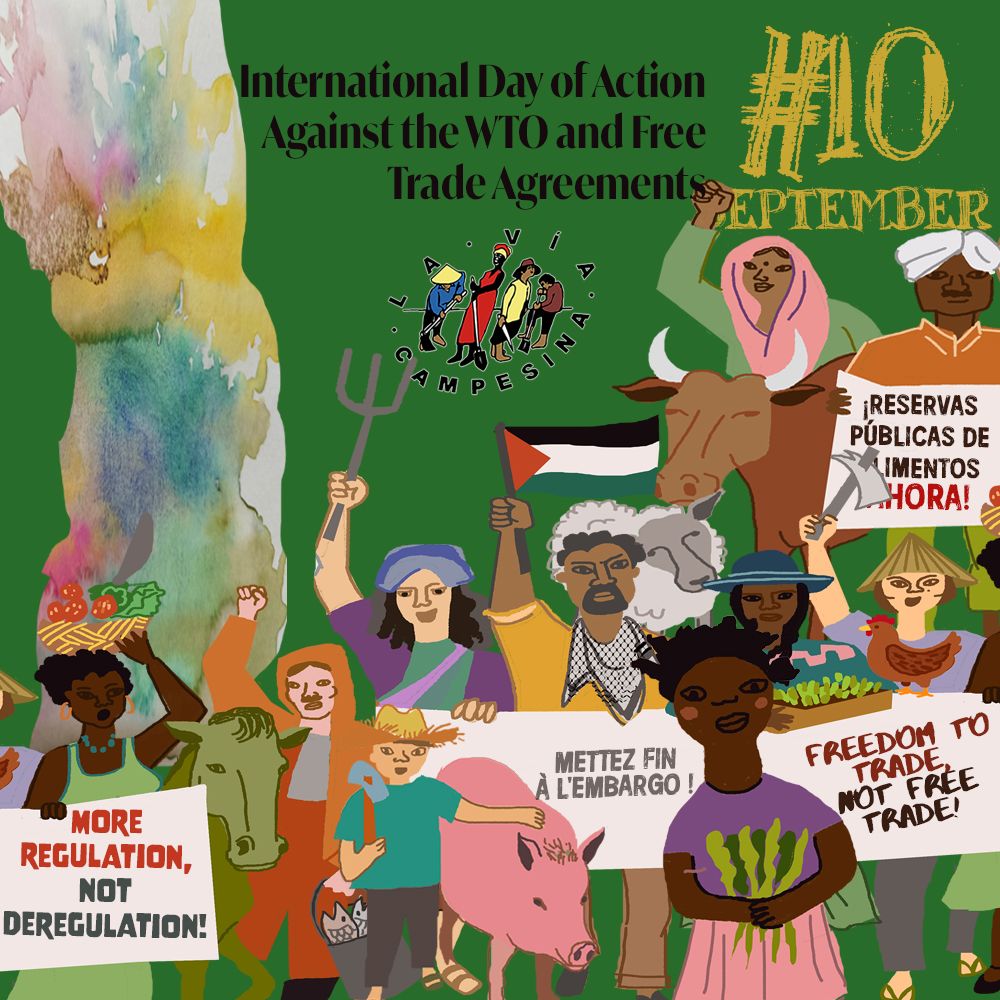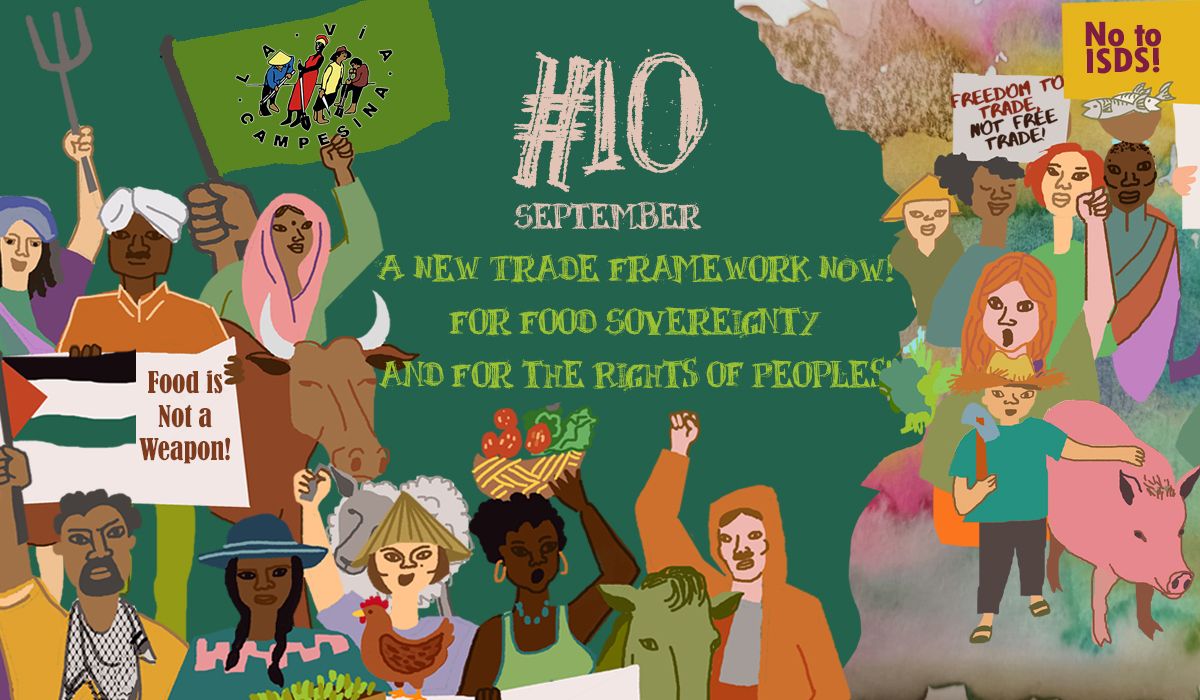The NFU Affirms Food Sovereignty for Local and Regional Markets and International Solidarity
September 10th: The International Day of Action against the WTO and Free Trade Agreements
This September 10th the NFU joins with the international La Via Campesina movement for food sovereignty to commemorate the martyrdom of Korean peasant leader, Mr. Lee Kyung Hae, who took his life in protest against the WTO’s policies of trade liberalization. Along with the peasants, farmers, farm workers, Indigenous peoples and the many other food providers in La Via Campesina, the NFU opposes the World Trade Organization (WTO) and Free Trade Agreements (FTAs), recognizing that the logic of ‘free trade’ benefits globalized corporations at the expense of food providers, communities and ecosystems. Many of these so-called free trade deals are anti-democratic and have been negotiated behind closed doors without public or farmer input.

In contrast, food sovereignty affirms the right of all peoples and countries to determine their own agriculture and food policies. Trade based on food sovereignty promotes meaningful democratic participation of small-and-medium scale food providers in decision making concerning agriculture, food and trade.
As farmers and farm workers in Canada/Turtle Island, we are building food sovereignty from the ground up to resist corporate-led, undemocratic systems and build solidarity with food providers internationally.
We are taking action to support and promote local and regional markets at all stages of the food chain by improving soil health and crop diversity, developing locally adapted seeds, bolstering local processing capacity and abattoirs, strengthening local food distribution and urban agriculture, defending supply management, providing safe and culturally appropriate food to our communities, and addressing hunger through policy advocacy and systemic change. With the capacity to feed our population at home, we build solidarity with our counterparts in other countries and reduce our reliance on export industrial monoculture plantations in the Global South. In addition, strengthening local food sovereignty supports efforts to meet our obligations to reduce greenhouse gas (GHG) emissions as agreed to in the UN Framework Convention on Climate Change and the Paris Agreement.
As we build local and regional markets, we know that it is critical to fight to strengthen protections for agricultural workers, including full labour rights, open work permits and a pathway to citizenship for migrant workers, many of whom are also farmers in their home territories.
Recognizing that Indigenous peoples’ struggles globally are at the forefront of actions to protect biodiversity in the face of the climate crisis, our pathway to food sovereignty seeks to build solidarity with Indigenous peoples, uphold treaties, and protect Indigenous rights and sovereignty.
Finally, adhering to the highest standards of human rights, an international trade framework based on food sovereignty prohibits any attempt to use food as a weapon of war in international conflicts. The NFU takes this opportunity to denounce the use of food as a weapon against the Palestinian people and again calls on our government to utilize all the tools at its disposal to put an end to the genocide in Gaza.
In solidarity with La Via Campesina farmers and peasants around the world, we commemorate Mr. Lee and affirm our collective struggle for food sovereignty. Practicing alternatives to the WTO and FTAs, NFU members are creating a path toward a more just trade system, thriving farm communities, food access for all, healthy ecosystems, and an end to war, violence and genocide.
– 30 –
